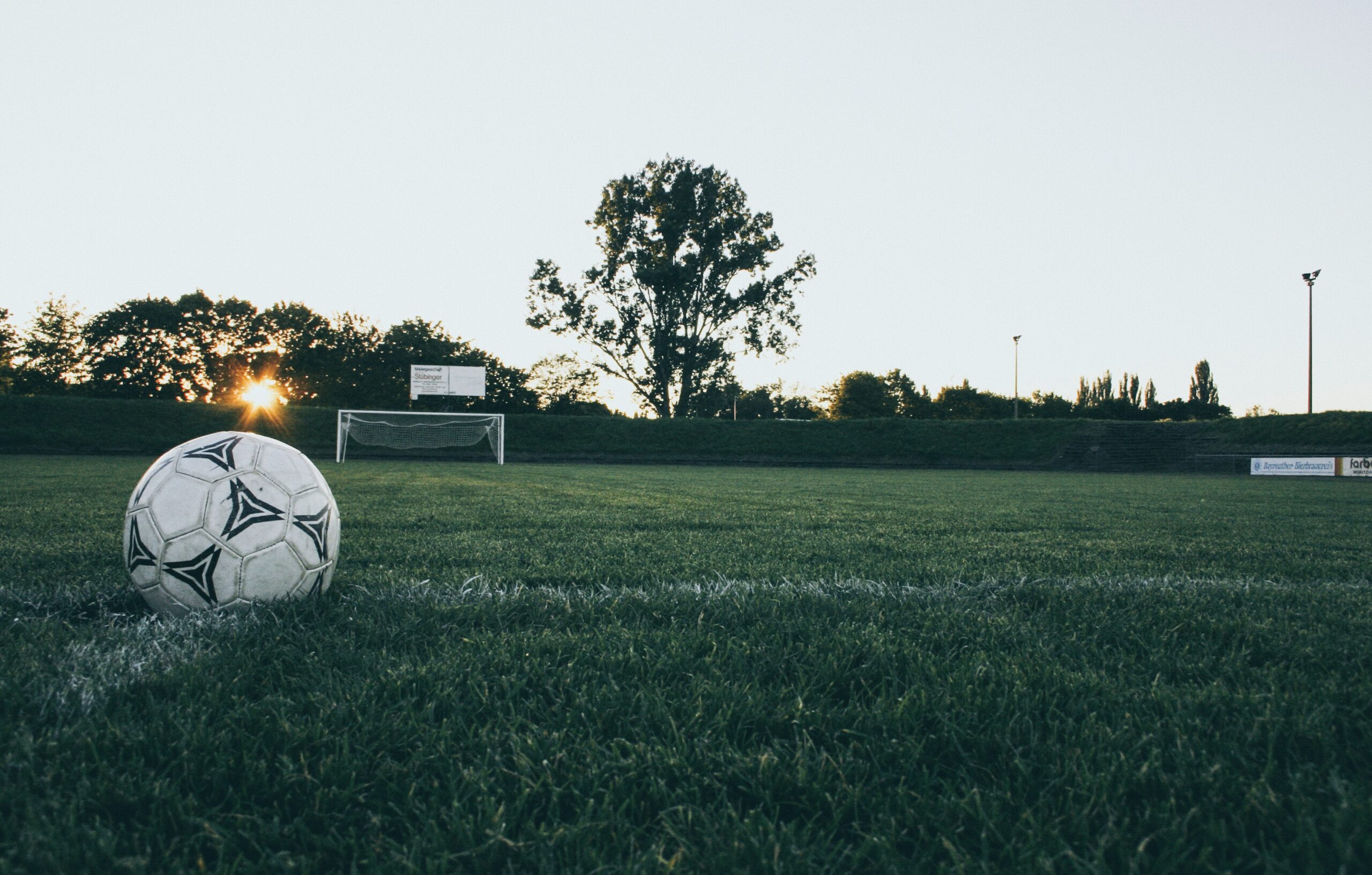Jude was recruited to play soccer. That was his thing and he knew it was a ticket to some of the aspirations his parents had for him–a top tier college, a chance to maximize his athletic talents, a way forward. I’d been given his profile in the spring before he arrived on our boarding school campus; the coach was bullish on his skills and his capacity to fit into the school culture. Jude was a smart boy, clever and accomplished in the myriad tasks that typify the 21st century adolescent. He took great notes, attended extra help sessions, studied for his tests and quizzes, determined not to simply ride by on talent. In short, the kid was one of those sophomores who looked poised to launch into the next level–academic, athletic, and well-grounded.
Late August is grueling in New England, since all the VacationLand attitude is fading and families are turning to the rigors of a new school year. It’s still sweltering and for the soccer players that arrive early to complete pre-season, those two weeks that precede the official kickoff to school can become a kind of crucible. Still, Jude trusted his soccer background and took his place in the training lines alongside other recruits. Some were local kids, some players that had traveled from other countries and continents to be there, all of them comfortable in the knowledge that they made up a new cohort of winning players who’d be joining a program used to success in New England and beyond. It didn’t go well.
A late arrival played in Jude’s same position, strong on the ball and capable of power where Jude was a finesse guy. The two were mismatched and the coach chose the former for that year’s squad. Released from the team with only a few days before the start of full classes, Jude reeled from the blow. He spent time on dorm holed up in bed, no longer feeling confident to fraternize with the soccer teammates, a bit adrift as the rest of the school came to life around him.
My team was the level below the elite and I enjoyed the freedom to teach the game to willing players. Many of them were solid, some had the aspiration to make it to the next level after a season or two of hard work and practice. Almost no one washed out of the top and agreed to play down a level; it was too hard on the ego and a slog to adopt a developmental mentality whereas a few days prior you’d been dreaming of college coaches sending you text messages about campus visits. The head coach and I conferred about Jude, making plans to bring him along more slowly, to convince him that he could benefit from this setback. We cared about the kid more so than the soccer player, but it was going to be a tall order to keep him onside.
These sorts of cases have always been some of my favorites. Students with something to prove, with a challenge to overcome, can sometimes surprise us all. It’s frequently a matter of finding a healthier frame for that kid to conceive of himself and to pursue a path that looks like progress, not just public success.
First day’s classes had ended and I was taking stock of my own tryouts. Jude arrived truculent and stand-offish, perhaps feeling he’d found another place in his new school where he didn’t quite belong. His hooded eyes and grim demeanor were on display. When I asked what position he usually played, he told me, definitively, “Varsity,” and let it sit there. Oh boy. Better technically than all but a few, Jude had game intelligence and that other thing–a willingness to battle and a relish for the fight–to set him apart. Yes, he was a player right in between first and second level soccer. The issue, of course, would be helping him to acclimate.
A few days later, my assistant and I pulled him aside after we’d picked the team to tell him that he’d be a major component in what we’d do but we’d need him to demonstrate team-first qualities and he’d need to play with–not against–his fellows. You always approach a student who’s struggling with maximum kindness. He was a young man away from his family for the first time who’d taken a serious knock to his self-conception and was sad about both. Jude needed a mentor and an advocate. Agreeing to marry a better attitude to his playing prowess, Jude grudgingly accepted his task. He scored a hat-trick in his first game that weekend, and the other players liked the kid not just for his silky touch but for his sly, sharp tongue and his resolve.
Occasionally you get a sense that there’s an opening to make a meaningful connection. You approach it more in hope than certainty, then reach out to the kid and see what happens. I did a little digging, spoke to Jude’s English teacher and his dorm parent, just to get some background, something I might use as a bridge to get him to open up to an adult he’d see every day for the next three months. Unsurprisingly, he was bright and respectful in class, though withdrawn, and he struggled to sync with his peers on dorm in the evenings. I left the dining hall one night early in September to climb the stairs to his dorm and found Jude half at work during Study Hall. Standing in the threshold, not too far into his space, I chatted with him about that weekend’s Premier League games, about his Macbeth reading, about whether he liked the school’s food or the weekend’s student mixer. Slow to thaw, Jude kept wary but answered my questions genuinely and articulately. He seemed puzzled that some Random Guy–the coach of the team he never wanted to play on–would take interest in him and find him during off-hours. Makes sense, why would someone do that? But every kid deserves the dignity of serious intercession and it’s our jobs as parents, teachers, mentors to respond when we see that chance for change. After twenty minutes or so, I moved on and left Jude to his trigonometry homework.
He didn’t like it when I subbed him off, convinced that he could always be the difference-maker when the game was tight. I never raised my voice with Jude in the way that I would with other players who responded to that kind of thing. He was learning the humility that comes with an adult’s guidance, a new way of seeing the game, the season, the high school years, with a bird’s eye view; Jude needed help growing up and marshaling that fire of his into consistently productive forms. “Relax and take your chances when they come; you can’t always demand they appear.” He liked that one.
Fast forward a couple of weeks. The team was undefeated and we were on a long bus ride home from the next state over. With the boys all fed and headphoned up in the back, I hoped to grab an hour to rest or text a friend. Jude sat just off to my left, however, his face blue-lit from his phone, stoic and pained simultaneously. He’d been messaging back and forth with a friend from back home who was struggling in her homelife. I eased into the open seat next to him and asked if he’d had enough pizza to eat. The next two hours, the young man wouldn’t stop talking, quietly at first then with increasing catch in his voice. He’d been quelling those pangs of dislocation, loss, self-doubt, and frayed camaraderie. In some cases, a student with anxiety or one who presents as antagonistic or who gives you the stiff-arm of adolescent contempt–all things I’d seen with Jude from the August tryout sessions–just wants a trustworthy presence to sit with them. It wasn’t a Come to Jesus talk, there was no Life Wisdom passed on from avuncular teacher to willing acolyte. Kid just needed an adult nearby so he could get that stuff off his chest. You know the chin lift that teenagers do with the little half-smile when they want to communicate more than they are prepared to? That’s what I got as Jude stepped off the bus that night and headed back to dorm. It was more than enough.
My wife and I had him and another teammate over to dinner one evening in late October. The squad was still undefeated and Jude had been a dynamo for us–scoring, assisting, battling, dragging the other players on, giving fits to opponents. He’d met my toddler daughter at one of our home games and, because he had a little sister the same age back home, could make her laugh by doing voices from Disney characters. We piled their plates with pasta and veggies, happy to have their laughter waft through the open windows. Jude had gotten tight with some of his dorm-mates and one of the senior soccer players had taken him under the wing, expecting that next season Jude would make the step up as we coaches hoped he would. He’d even been to a couple of school dances with a certain girl in his French class. That simmering resentment from August, the negative self-talk that I’d heard him use when he’d miss a shot in practice, the prickly interactions with players he’d considered beneath him–it had evened out and Jude’s bright eyes seemed authentically happy that night. It would have been easy eight weeks earlier for the coach who recruited him to our school to simply say, Not Good Enough, and turn his attention elsewhere, just like it would’ve been easy for me to give into that initial impression I had of a self-important player who hadn’t earned his place on the team and so wanted everyone to know he was mad at the world.
Listen, we parents and teachers go into this endeavor because we love kids. We begin in expectation and then life’s circumstances give us concrete events to materialize that care and concern.
I pushed back the matted hair from his forehead and saw that his tears were growing cold on his cheeks. Jude’s leg was broken. It was pretty bad. The athletic trainers had covered him up with blankets while we waited for the ambulance to arrive and as my knees sank into the cold November mud, I could see him shivering as he lay on his back. The last game of the season, the biggest rival, last night’s school-wide pep rally still ringing in memory. The team had built up to this day and Jude was the team’s talisman. He’d been all-action in the first half, piling through the mucky field, caroming off defenders; the boy was up for this one, for sure. Though he wasn’t playing for the senior team on the adjacent field, Jude had found his place, a niche where he was confident, committed, and cared for. The concomitant change in his equilibrium and in his self-awareness made me proud to see. I wanted very much for him to score the game-winning goal and thus, create a story-book close to a season that had produced such growth in the guy.
The scoring chance was developing quickly. Our winger passed the ball through the box onto Jude’s left foot and he was ten feet away from the goal-mouth. He’d faked the first defender to create space and transferred the ball from his left out in front and a better shooting position. With all his weight on a left leg that sank into the mud and all his attention laser-like on his chance, Jude never saw the second defender go to ground, barreling towards him through the slushy grass. I was out on the field before the referee had blown the whistle. My guy was hurt.
Thirty minutes later once the ambulance pulled away with Jude and another coach heading to hospital, we’d gotten the teams back on the benches, consoling both Jude’s teammates as well as the poor kid from the other team who’d injured him. Freak accidents don’t have villains and certainly not teenagers who are just doing their clumsy best in a JV soccer game. Our team was more than a little shelled and the fans had drifted off. It was a locked on penalty kick, a dangerous play in the box, and the ref pointed towards the spot.
Our talented freshman, a kid who looked up to Jude and emulated his bow-legged running style and copied his goal celebration, was the penalty-taker. Last match of the season, rivalry game, team-mate injured. The place was silent and then the whistle blew.
I called his parents as soon as the game ended and asked them to please update me when the doctors had a sense for what would happen next. A few hours later with the bus driving through the darkening New England night, I got a text message from the me-first, angry boy from August who would need three surgeries to repair his leg:
“Hey Coach, how did the team do?”






